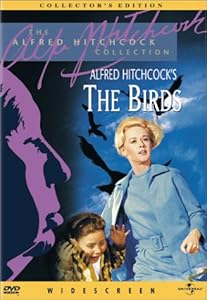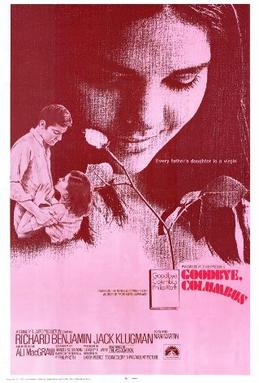by Dean | Feb 26, 2019 | General
If Spike Lee wants to make a film about the not-yet-obliterated racism of past decades, that’s fine, but he needs to do it without utter agitprop. Agitprop has no place in art.
Except for Kyle Smith, the critics drooled over BlacKkKlansman (2018); but Smith was right that “The movie is a typical Spike Lee joint: A thin story is told in painfully didactic style and runs on far too long.” Painfully didactic, yes: Lee editorializes nearly all his characters, caring not about them but only his message, such as it is. It’s okay for him to be implicitly anti-Trump, but it is done in a stupid fashion. In fact, the whole movie is sufficiently stupid, in its assault on bigotry, to veer into a certain skepticism about American Christians and not just disapproval of the misuse of Christianity by Ku Klux Klan types.
BlacKkKlansman is an unholy wreck.
by Dean | Feb 24, 2019 | General
Harold Lloyd knew how to play an innocent, as in The Cat’s Paw (1934), and here he is the son of a missionary in China, one wishing to perpetuate his father’s work by returning to Stockport, California, the place of his birth, in order to marry and produce offspring. But the toxic political machine in Stockport seizes the Lloyd character—Ezekiel Cobb—to render him a straw candidate for mayor with the expectation that the machine’s reprobate candidate (a good Alan Dinehart) will win. Cobb, however, comes across as a “regular guy” and he wins. Subsequently he learns perfectly how unsavory men can injure him, and vigorously he fights them not only for his own good but also for the city’s good.
This is a Harold Lloyd talkie, consisting of lively set pieces, likable wit, and respectable acting. Once the funny moments begin to subside, even so, the movie’s pace drags a bit; and yet Lloyd and Una Merkel (the saucy love interest) hold the eye. As for the ear, it’s fascinated by such talk as when the innocent earnestly asks Merkel: “Why is it that all American girls are so lacking in individuality?” In 1934, were they?
Directed by Sam Taylor.
by Dean | Feb 22, 2019 | General
Herein, Tippi Hedren plays a practical joker who finds out, of course, that life is no joke. The birds in Bodega Bay have gone insane, psychopathic, vicious. Relationship problems pale in significance when the avian attacks begin. One wonders why Tippi and Rod Taylor spend as much time outdoors as they do.
The Birds, Alfred Hitchcock’s 1963 offering, is a character-driven drama (consider the two women, Lydia and Annie, who fear abandonment) before the bird business heats up. . . Has the film aged well? Sure. The special effects no longer impress, if they ever did, but images and scene set-ups are still sobering and vivid. The dead man at the farm, the gathering of crows on the playground jungle gym, the gasoline fire on Main Street—all brilliant. In spite of a lot of poor acting—thank Heaven for Jessica Tandy—The Birds is an almost-great horror flick.

Cover of The Birds (Collector’s Edition)
by Dean | Feb 19, 2019 | General
I have seen the first two episodes of the new Netflix series, The Umbrella Academy. We need another visual narrative about X Men-like superheroes like we need Jussie Smollett giving campus lectures on the subject of hate crimes. The action scenes have been fun, but the rest of the stuff is rather stale and sophomoric. Plus, Ellen Page‘s acting has been indifferent, phoned-in.
by Dean | Feb 18, 2019 | General
Directed by Ivan Passer, Born to Win (1971) presents us with J. (George Segal), a drug addict who considers himself . . . born to win, which actually means born to get the fix he needs. Only he usually doesn’t. What he does is fall in love with Parm (Karen Black), who immediately, strangely likes him and accepts him as he is. They have a good time, but it’s without drugs and J. wants to score. There is excess in the film in that too many bad things happen to J., and yet, to be sure, BTW asks: Does the opposite of being “born to win” exist?
Another fault is that an episode of zany comedy fails to blend in with the film’s enjoyable drama. Passer and David Scott Milton, however, wrought an original screenplay, and there is a load of fine acting. Segal is at his thoughtful best, not at all miscast as a junkie. Black is superbly convincing, and Jay Fletcher does an estimable job as J.’s black junkie friend. Marcia Jean Kurtz and Robert De Niro are gratifyingly realistic. But Born to Win is a work of seriousness and certain artistry more than it is a truly good work.
by Dean | Feb 14, 2019 | General
It is after a talk with a psychoanalyst that Jill (Merle Oberon) develops an uncertain feeling about her marriage to Larry (Melvyn Douglas)—this in the film, That Uncertain Feeling (1941), by Ernst Lubitsch—and she starts pulling away from him. But Jill’s marriage is not a bad one. Soon, nevertheless, she takes up with a frowning pessimist (Burgess Meredith) who is not the man for her because he couldn’t possibly be the man for any woman. Still, a divorce is in the works.
Lubitsch’s movie, a comedy, is rather slight, and the subject of a couple’s desire for sensible reunion was funnier in 1939’s The Awful Truth. Also it could be asserted that Feeling is not entirely convincing except that Oberon and Douglas have a way somehow of making it convincing. Besides, it’s romantic comedy, as as such it is fantasy with the ring of hard truth. It isn’t one of Lubitsch’s best, but it is wry and skillfully acted.
by Dean | Feb 12, 2019 | General
Larry Peerce’s Goodbye Columbus (1969) is a Hollywood movie for adults since the Philip Roth story from which it derives is a novella for adults. It is well known that it has to do with the attitude of rich American Jews toward low-income Jews (and vice versa), but when Peerce isn’t proving what a romantic he is, he is imposing on us some ugly, very raffish, and insulting satire. Romantic? Yes, in the scenes where Neil and Brenda, falling in love, are together, and these can be pleasant. Richard Benjamin and Ali MacGraw enact the lovers with savvy and heart. But Goodbye Columbus is pushy and fails to adequately convey the ultimate meaning of Roth’s story (in the diaphragm sequence). It is, I think, worth seeing but just barely.

Goodbye, Columbus (film) (Photo credit: Wikipedia)
by Dean | Feb 10, 2019 | General
Thanks to YouTube I was able to see a film by the French director Claude Autant-Lara other than his mediocre Sylvie and the Phantom, the film being the 1958 Love is My Profession, or—a far preferable title—In Case of Adversity.
Bit by bit corruption gathers in a domain apparently created by Georges Simenon (whose novel is the source for this picture) as a lawbreaking party girl, Yvette, fights her own poverty through a spasm of violence and is defended by Andre Gobillot, a wily, now unethical lawyer. Gobillot, though married, falls in love with Yvette, and the fornication begins. Yvette, however, can be sensitive and affectionate but not loyal.
The film is a commercial piece with little to say, although its vision of life is tough (Simenon-like) and hardly divorced from quotidian cakes and ale. It’s engaging. The music is sheer Hollywood, but Autant-Lara directed intelligently, admirably. Jean Gabin, as Gobillot, does little to own the role; he gives too many expressionless looks. He is passable, though, but no more. Edwige Feuillere is first-rate as Gobillot’s wife, but Brigitte Bardot (Yvette) needs more subtlety in her energetic performance. All the same, of course, beautiful B.B. adds a lot to the picture.
by Dean | Feb 7, 2019 | General
Lady Gaga has said to Mike Pence, “You are the worst representation of what it means to be a Christian,” and, incensed over the government shutdown, has castigated “the f–king president of the United States.”
Hey, aren’t we supposed to be living in a time of nonjudgmentalism? That’s a laugh.
These narcissistic celebrities like to talk about politics, but something tells me they haven’t read much Irving Kristol or James Burnham. Correlatively, they are as boring as they are profane.
by Dean | Feb 5, 2019 | General
The silent flick, Safety Last! (1923), begins with a scene suggesting that Harold Lloyd (as The Boy) is in a prison cell waiting to be hanged for an unknown crime, but, no, it’s just a sight gag. Harold is simply at a railroad station. Yet an approaching hanging, if it were real, would be just one more scrape the amiable but aggressively fighting comic figure would have to survive.
All the nerd wants to do is raise enough money in the big city to marry The Girl (Mildred Davis), for there is prosperity in the big city. Yes, but there’s poverty as well—it exists for Harold and his roommate. The demands of money-making tasks keep Lloyd in mad tumult. Even a skyscraper must be conquered.
Comedic movies of the 1930s were good because they were interesting. Comedic movies of the 1920s were good because they were funny. (Those of the 1930s [e.g. Duck Soup] could be funny too.) And the physical comedians were delightfully talented. Safety Last! was written by Hal Roach and a couple of others, with Lloyd as an uncredited writer. Lloyd did not direct it. Mainly he was the great actor, a perfect linchpin performer. Incidentally, I now wish to see some 1930s Harold Lloyd films.





